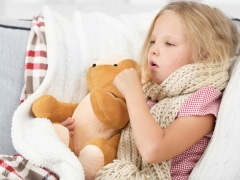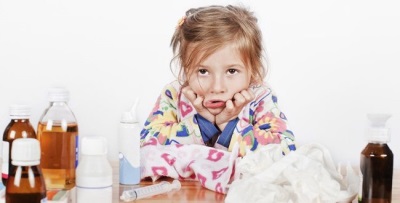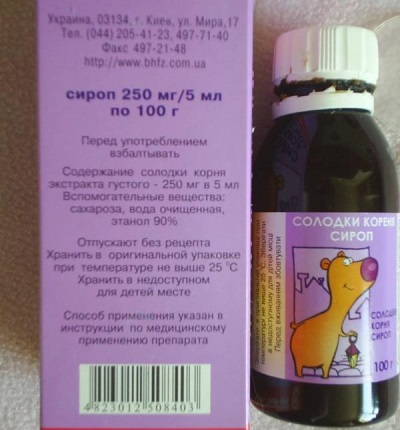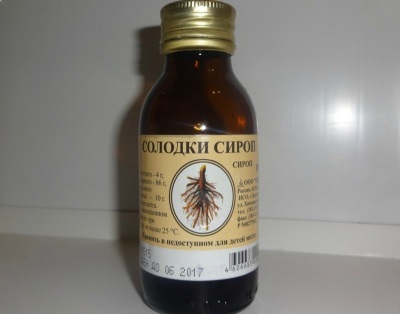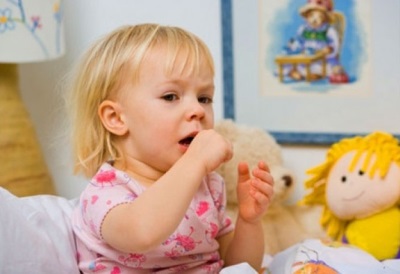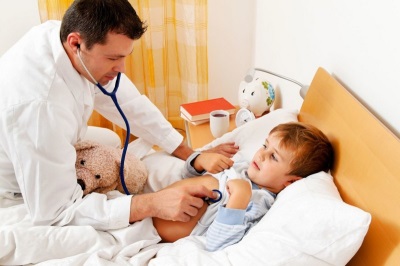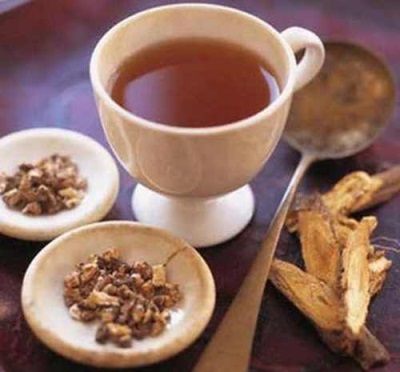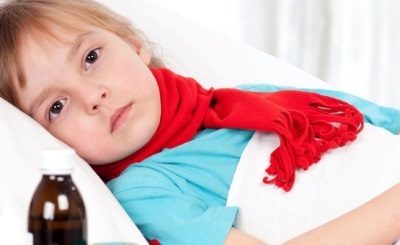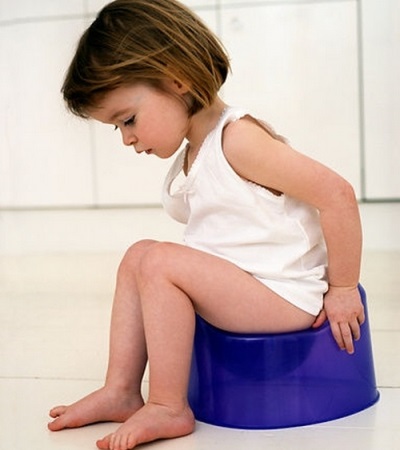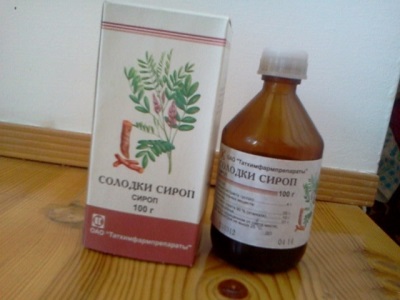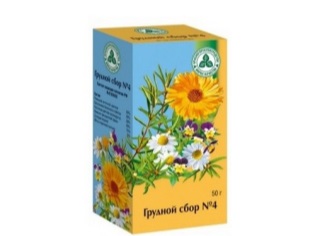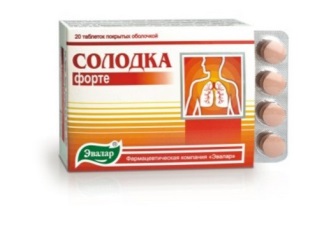Licorice root syrup when coughing in children - instructions for use
Diseases of the respiratory system are most common in childhood. All parents are confronted with them, so the questions of the choice of cough medicine are very relevant for every mother. If a sick child coughs, and the sputum is removed with difficulty, he is prescribed medicines with expectorant effects.
Such drugs help to make mucus in the respiratory tract more liquid and stimulate its secretion, as a result of which the cough becomes more productive.
Most often these drugs are represented by syrups. Some of them are made from plant ingredients, others - from synthetic compounds. And choosing a syrup for a small child, for example, at the age of 3 years or 5 years, most mothers tend to herbal remedies, one of which is licorice root syrup. In order for such a drug to cope with coughing, you need to know how to use it for children and how much syrup to give to a child, depending on his age.
Composition
100 grams of syrup contains 4 grams of its main active ingredient, represented by a thick extract of licorice root. Such a plant, which is also called licorice or yellow root, has long been used in the treatment of cough. It is found in the European part of the country, in Siberia, and also in the Caucasus. From the roots of licorice get the hood, and then make various drugs.
It is important to note that every 100 ml of licorice syrup includes 10 ml of ethyl 96% alcohol. This information should be considered when choosing a remedy for the treatment of cough in infants. The third component of the drug is sugar syrup, which in a 100-gram bottle contains 86 grams. Such a composition causes the syrup to have a brown color, a sweet taste and a peculiar smell.
So that the licorice extract does not lose its medicinal properties and has been stored for a long time, it is released in dark glass bottles. Some manufacturers add preservatives, water, refined glycerin, citric acid and other substances to the preparation, but the most common are medicines that contain only licorice, sugar and alcohol.
How does the child's body?
The main action of the syrup, which contains licorice root, is the stimulation of the motor and secretory functions of the respiratory system organs. The drug is prescribed for a wet cough, as expectorant, if in the bronchi of the child there is a viscous, thick and poorly detachable secret.
The properties of the medicine are due to the presence of active substances such as glycyrrhizic acid, essential oils, glycyrrhizin, polysaccharides and flavone glycosides in the roots of licorice. It is these compounds that activate the function of the epithelial cells of the respiratory tract and relieve the spasm of the smooth muscles of the bronchi, due to which the mucus is diluted, and its secretion during coughing is facilitated.
In addition to the expectorant effect of licorice syrup, other effects are noted:
- General strengthening of the child's body.
- Anti-inflammatory effect.
- Antimicrobial as well antiviral act.
- Stimulation of the body's defenses.
- Acceleration of healing of mucous membranes.
- Lowering cholesterol in the blood.
- Diuretic and laxative effect.
- Antitumor effect.
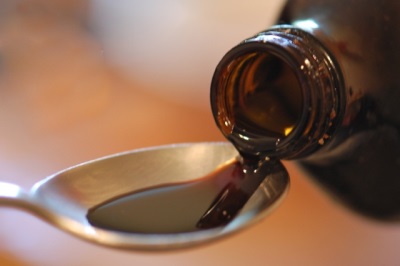
Benefits
Frequent use of licorice syrup in the treatment of cough in children is due to a sufficiently large number of positive characteristics of this drug:
- Licorice root syrup is an affordable, inexpensive drug found in many pharmacies.
- The basis of the drug is plant raw materials (natural extract of the roots), so it can be given in childhood.
- Thanks to the sweet taste, most ill children do not refuse this type of medicine.
- This syrup is a ready-made remedy that can be given immediately to a coughing baby without the need to mix, boil, or push anything.
- A thick syrup quickly envelops the mucous membrane and begins to act almost immediately after ingestion.
- Licorice syrup is quite convenient to dose. Many manufacturers include a scoop or measuring cup in the packaging of such a medicine.
Indications
Given the expectorant effect, licorice root syrup is most often prescribed:
- With acute bronchitis.
- To relieve cough in acute laryngitis.
- With pneumonia.
- When tracheitis.
- With chronic bronchitis.
- With bronchiectasis.
Also, the drug can be prescribed for surgery on the respiratory tract, both before and after the intervention. It is recommended for gastritis or peptic ulcer disease, but only during the period of recovery and remission.
Contraindications
Before you figure out how to give licorice syrup to children, it is necessary to take into account the presence of certain contraindications to this remedy.
This drug should not be given to children with:
- Hypersensitivity to any of the components of the drug.
- Gastritis in the acute stage.
- Bronchial asthma.
- Heart rhythm disorders.
- Peptic ulcer of the digestive system.
- Hypertensive heart disease.
- Impaired renal or hepatic function.
In case of diabetes, the medicine must be prescribed very carefully, because it includes sugar.
For more information about the benefits of licorice root, see the program "Live healthy."
How old can you use in children?
Syrup, which is made from licorice root extract, is approved for use at any age, but most pediatricians are not advised to give such a tool to children of the first year of life because of the presence of ethyl alcohol in its composition. The use of licorice syrup is recommended for children who are already 1 year old.
In this case, the use of this drug in children 1-12 years old should be agreed with your doctor, who will specify the dosage and determine whether there are any contraindications. The doctor will also consider that this medicine has incompatibility with some other medicines. For these reasons, it is not recommended to give licorice syrup to children under 12 years of age alone.
Application Methods
The medicine is taken orally after meals, but before giving it to a child to drink, you should learn how to dilute this drug. To dilute the syrup, children need to take boiled water at room temperature. In addition, before measuring the required dose of syrup, shake the bottle. If the drug is measured in drops, they are dripped into a spoon with water.
- Children at the age of 1-2 years at one time give 1 or 2 drops of syrup.
- Children who are 2 years old, the required amount of the drug is diluted in a tablespoon or a quarter cup of water.
- At the age of 2 to 6 years, the dose of the drug can vary from 2 to 10 drops, for example, a child in 4 years can be given 5 drops of syrup per dose.
- Children older than 7 years to 12 years of age are recommended to dilute 50 drops of the drug in half a glass of water.
Max. A single dose of licorice syrup depending on age is:
Children under two years | The number of drops equal to the child’s age in years. |
Children from 2 to 12 years | Half a teaspoon. |
Children over 12 years old | Full teaspoon. |
The frequency of use of the syrup is three times a day, and the duration of treatment is from 7 to 10 days. In order for the expectorant effect of such a medicine to be more pronounced, the child should be given a lot of warm drink, for example, weak tea or savory compote.
Side effect
Some children taking licorice root syrup have nausea and diarrhea. Also, the drug can cause an allergic reaction, which is manifested by itching, swelling and redness of the skin, rash. If such signs of intolerance occur, the medicine is canceled, replacing it with a drug with a similar effect.
Side effects may also occur in case of violation of the recommended treatment time (taken longer than 10 days). If you use funds with licorice for a long time, it can lead to an imbalance of fluid and electrolytes in the body, which will cause swelling and increase blood pressure.
The same side effect is noted when the licorice root syrup is combined with diuretics, cardiac glycosides, laxatives, and some other groups of drugs. It is very dangerous to take such a syrup along with antitussive drugs that can suppress the cough reflex.
Reviews and price
Before you take a syrup with licorice root extract, you should also read the reviews of parents who have already given this medicine to their coughing children. In most cases, licorice root syrup responds positively, noting that such a remedy really effectively helps with cough in children.
Among the advantages of the drug is its availability, pleasant sweet taste, natural composition. The drawbacks of licorice syrup, many mothers consider the presence of alcohol and sugar in the medication, as well as the presence of contraindications.
As for the cost of licorice syrup, domestic drugs and syrups produced in neighboring countries are inexpensive. You will pay from 20 to 50 rubles for the packaging of medicines of such manufacturers as Samaramedprom, Viola, Omsk pharmaceutical factory, Caucasus Flora or Borschagovsky HF plant.
Other drugs from licorice
Licorice root syrup is not the only drug option that contains an extract of this plant. Licorice is presented in pharmacies in the form of tablets, as well as added to various herbal and complex cough syrups.
You can also buy candy from licorice, in which, in addition to the plant extract, there is sugar, gelatin, molasses, starch, flavors and other substances. These sweets like kids and can be used in the treatment of cough in childhood.
More information about the treatment of cough in children, see the transfer of Dr. Komarovsky.
